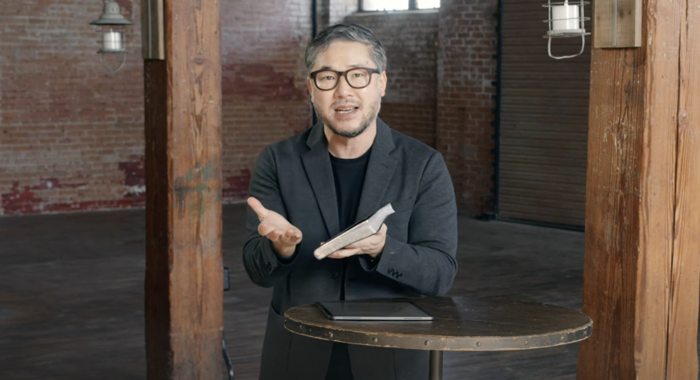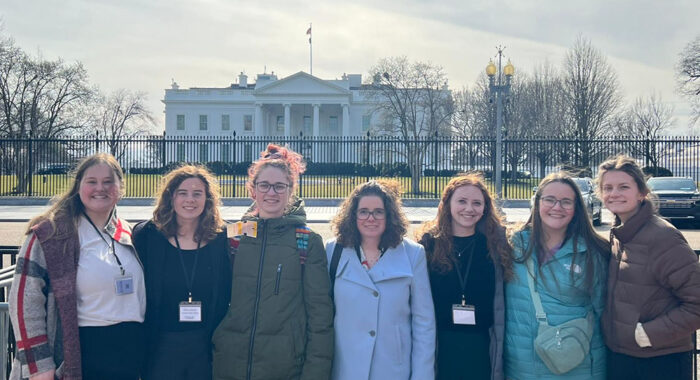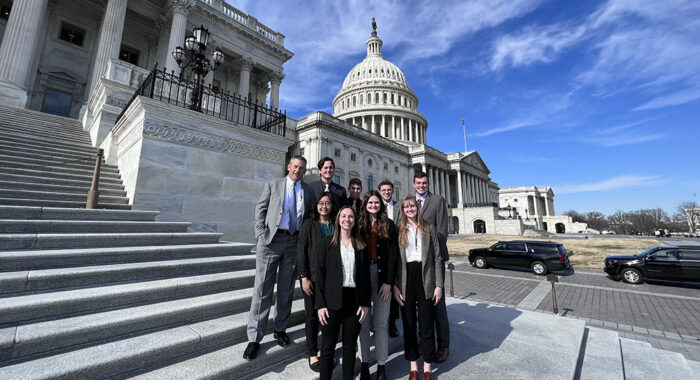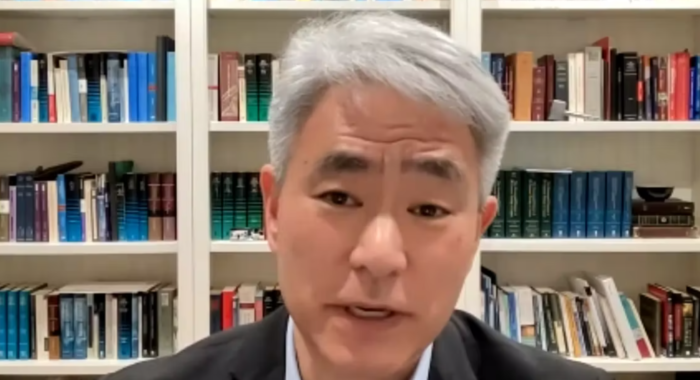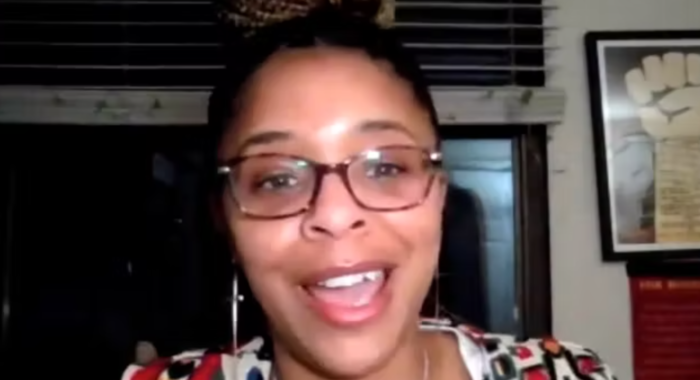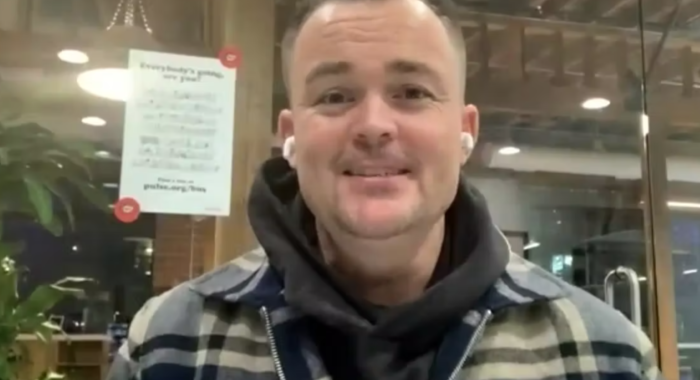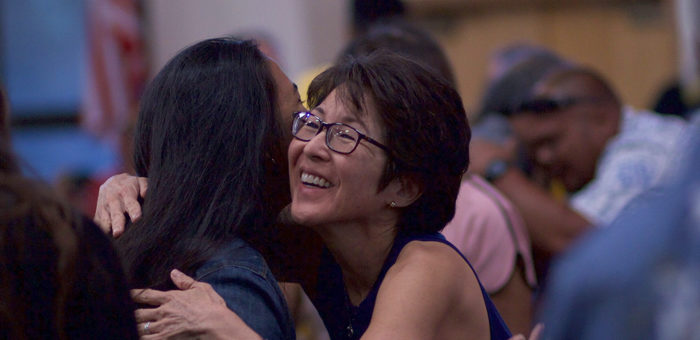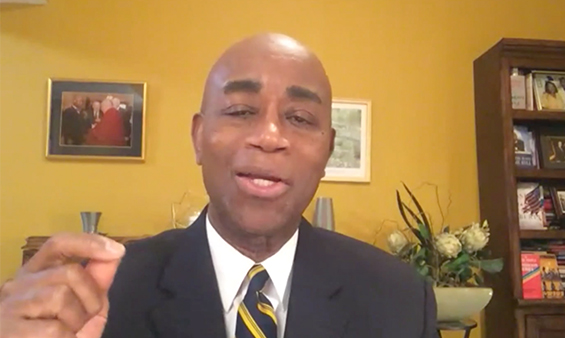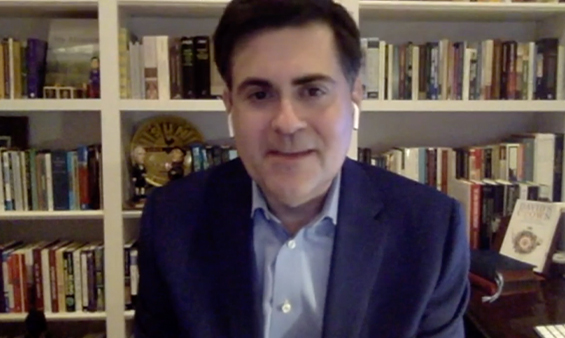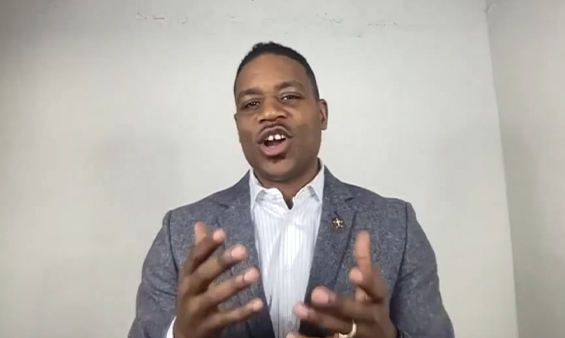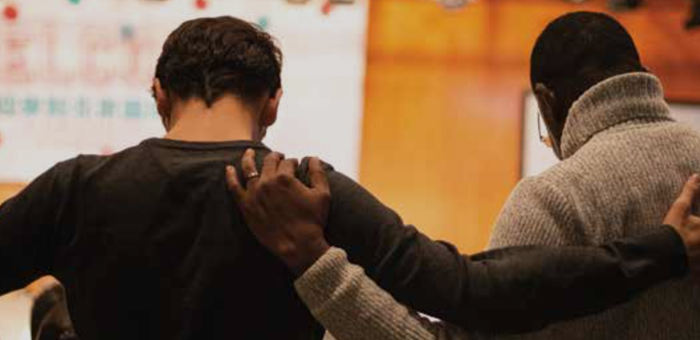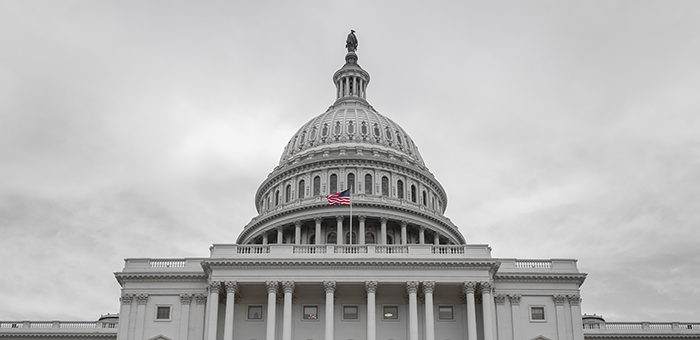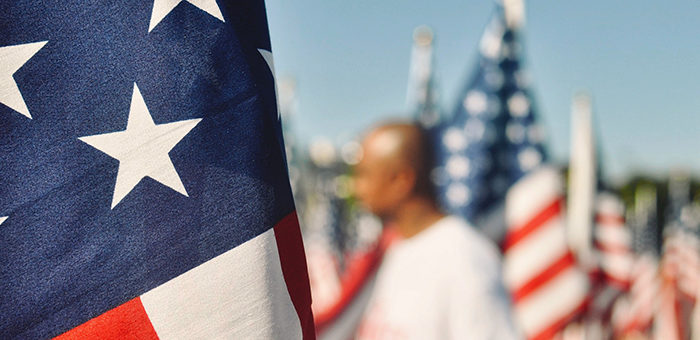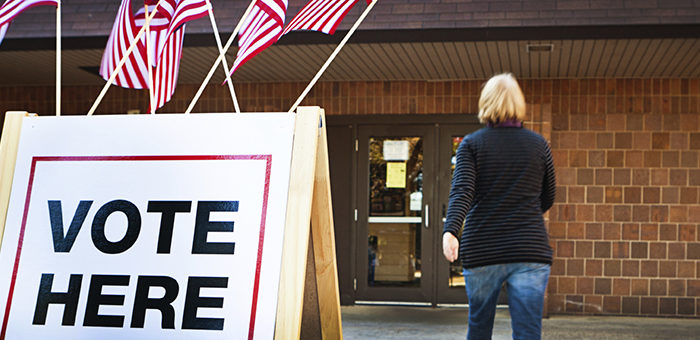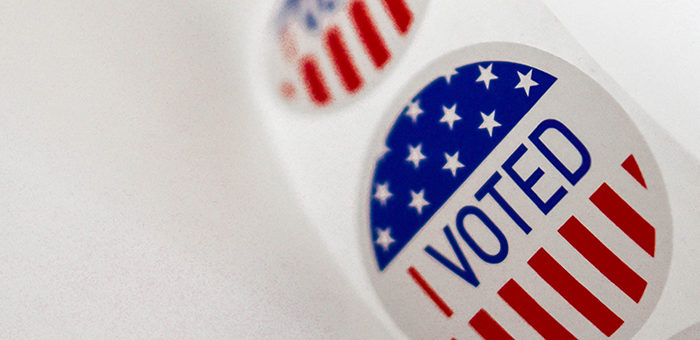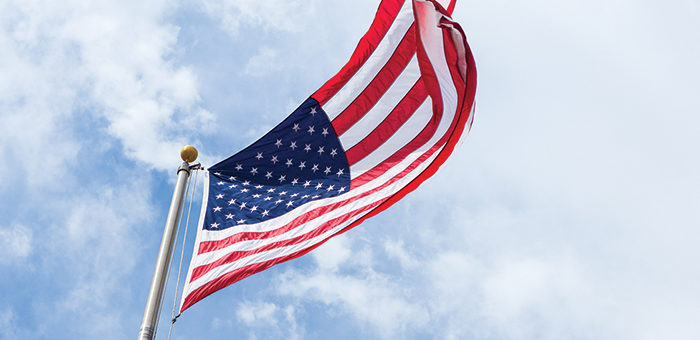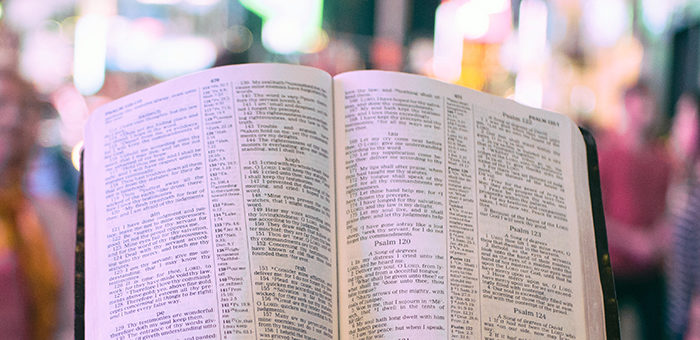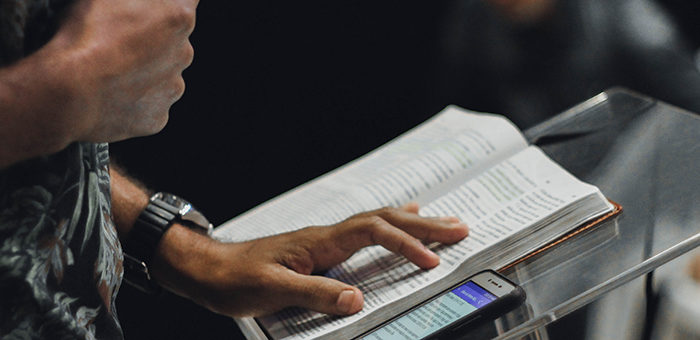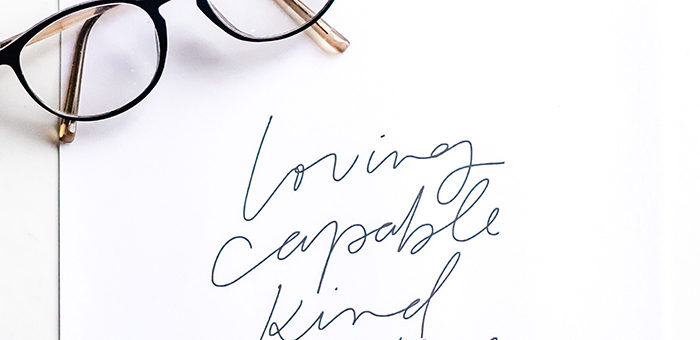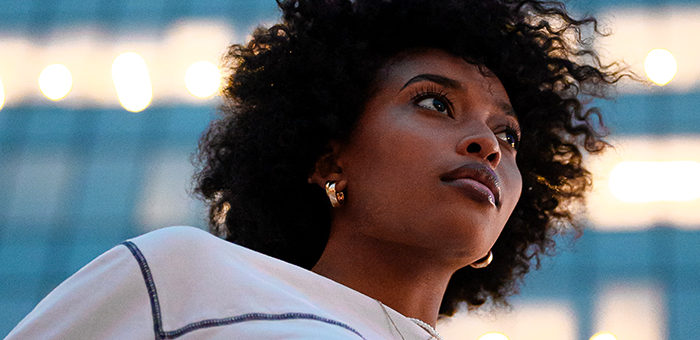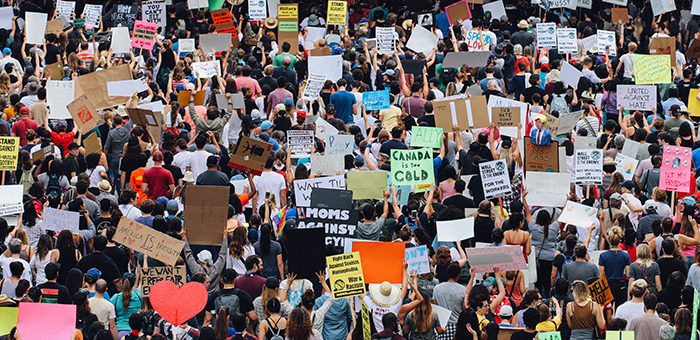Richard Mouw is professor of faith and public life and president emeritus of Fuller Theological Seminary. He served as the seminary’s president for 20 years. Prior to teaching and leadership at Fuller, he taught at Calvin College in Grand Rapids, Michigan, for 17 years. He has participated on many councils and boards, recently serving as president of the Association of Theological Schools. Mouw has written 19 books, including “Uncommon Decency: Christian Civility in an Uncivil World.”

Many of us are stunned by harsh and mean-spirited comments from both sides of the political aisle — whether from presidential candidates or our own Facebook friends. In Today’s Conversation, Leith Anderson talks with Richard Mouw on incivility in the public square and how to address it.
In this podcast, you’ll hear from a distinguished evangelical statesman, who has spent much of his life and career addressing civility, on:
- How to bring “conviction” and “civility” together;
- The differences between the tenor of today’s public discourse and that of past decades;
- Which Bible passages challenge our own rhetoric; and
- How the cultural marginalization of evangelicals impacts the way we interact with others.
Read a Portion of the Transcript
Leith: So let’s begin by making sure we agree on terms. So how do you define “civility”? What does it look like? What does it sound like?
Richard: Civility is — to put in kind of more basic terms — it’s just being a respectful person in public life. The word comes from the word “civitas” for “city” and in the ancient Greek state — city state — civility was learning how to get along after you’ve learned how to get along with kinfolk — later on with friends — learning how to treat people in the public square from different nations, lifestyles, different races, religions, with a genuine respect that took their fundamental shared humanness with you seriously.
Leith: Well today, in the USA, it is a topic of frequent conversation, because it sort of feels like American public life is unusually divided — political attack ads; people forward emails with inaccurate messages; there are all these social media posts, many of which are just intended to provoke incivility. So it’s certainly not difficult to find it, and there are real policy changes and differences along the way, but there’s a question that many of us are asking, “Is that the way we have to be? Does it really need to be so mean-spirited in today’s political world?”
Richard: As a Christian I certainly wouldn’t say it’s the way we have to be. It’s certainly not the way Christians have to be. But I think given our created humanness, it’s not the way we’re made to be. We’re made to respect people, to acknowledge that people with whom we disagree are created in God’s image and that they deserve a civility from us. So I think it’s a very important time to be saying, “This is not the way it’s supposed to be.”
Leith: It begs the question of whether or not things are different now than they’ve been in the past. CNN has recently run a series about previous presidential elections, and I’ve seen only a few of them but I’m kind of stunned to find out about some of the uncivil things that have been done in the past. But what’s different today in public discourse? Or is it just the same way it’s always been, and we’ve just sort of idealized the past and demonized the present?
Richard: I think there are really two different answers to that. And the one is, even if it’s not brand new, we’re surrounded by it much more. I mean in the old days, when I was being raised on television, you watched the Camel News Caravan for 15 minutes at night and a little bit of Walter Cronkite or something, but today, it’s 24/7 — you can tune in any time. And the coverage that’s given — I mean the tremendous media coverage — and then furthermore, just the ways in which people interact with each other on the web. I was a columnist for something called Beliefnet for awhile. I would write something, and somebody in the comments section would say something to disagree with me and somebody else would disagree with them, and there may be 143 comments, but only the first couple have anything to do with me. People are shouting at each other — as it were — on the internet, and I think we’re just seeing it a lot more.
But on the other hand I do think that there is something new, and I think it has a lot to do with the fact that — well, this sound like a strange connection — but I think the family meal is very important. Many of us learned our basic manners sitting at a table with people we were irritated with, and we had to stay there for 45 minutes no matter what. And these days people don’t eat together. They don’t dine together. And families break up. And their extended family isn’t surrounding a kid. There are all kinds of ways in which the earlier reinforcers and shapers of politeness and civility are no longer with us, and I think that’s an issue that the Church needs to address.
Leith: So if I’m understanding what you’re saying, it’s that the flames have always been there, just the winds are more intense, and there aren’t the breaks. The family dinner would be — among other things it would be — the place where we learn how to do it and if we’re not learning how to be civil, then we don’t really know what to do. We don’t know how to handle that.
Richard: That’s right. You know we’re seeing so much fragmentation of family life, that it can’t surprise us that when kids grow up in that environment, they promote a fragmentation in public life.
Leith: So civility and incivility, they’ve especially been highlighted in politics, but what about other areas of public discourse? So my home is in Minnesota, there’s been a front page news story this past weekend about incivility in children’s sports, and parents who are being excluded that they cannot attend any of their children’s sporting events because of the things that they shout. But one of the interesting comments that was in one of these articles said how it’s becoming more difficult to get parents to coach children’s teams, because they don’t want to put up with the abuse that they have to take from other parents. And then I’m kind of embarrassed to say that there’s incivility among evangelicals with one another. So you and I have been treated unChristianly by some of our fellow evangelicals. So why is this? And I really want to know how do you handle that personally, because it comes your way.
Richard: Let me say first, somebody asked me recently — I’ve been involved in a lot interfaith dialogue with Muslims, Mormons, Jews, Hindus — and somebody asked me recently, “What’s the most difficult interreligious dialogue you’re engaged in?” And I said, “Actually the most difficult is with other evangelicals.” And in many ways that shouldn’t surprise us…
Share the Love
If you enjoyed the program, please rate it on iTunes and write a brief review. That will help get the word out and raise the visibility of the show.
Today’s Conversation is brought to you by Zondervan, a world leading Bible publisher and provider of Christian communications, including a new book by NAE leaders Leith Anderson and Galen Carey titled “Faith in the Voting Booth: Practical Wisdom for Voting Well.”



 View All Podcasts
View All Podcasts 







